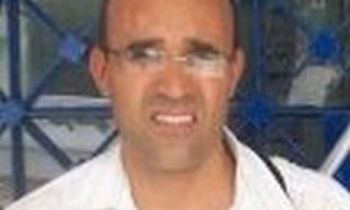The International Federation of Journalists (IFJ) has urged President Joao Bernardo Vieira of Guinea Bissau to put an end to the harassment of journalists reporting on drug trafficking in the country.
“We are dismayed that one reporter who interpreted for ITN News, a British television investigating drug trafficking has been charged with libel after the head of the navy filed a complaint against him,” wrote Gabriel Baglo, Director of the IFJ Africa office. “Threats against another reporter who has written about the drug trade have pushed him into hiding.”
Albert Dabo, a journalist working with Reuters and the private radio station Bombolom FM, was charged on August 29 with libel, violating state secrets, libellous denunciation, abusing press freedom and colluding with foreign journalists. This followed a complaint lodged against him by the chief of the national navy, Rear Admiral Jose Américo Bubo Na Tchuto.
Rear Admiral Na Tchuto says Dabo falsely attributed to him the allegation that soldiers are implicated in drug trafficking during an interview for ITN News a British television in which Dabo acted as an interpreter. According to Dabo, none of the media outlets where he works carried this interview.
IFJ believes that the charges against Dabo are totally baseless and fears that he will not receive a fair trial. IFJ called on President Vieira to urge Rear Admiral Na Tchuto to withdraw his charges and stop military threats against Dabo, who has been receiving death threats since June. Because of the seriousness of these threats, Dabo was briefly forced into hiding.
International law enforcement experts say the poor former Portuguese colony is being used by drug cartels as a staging post to smuggle Colombian cocaine to Europe, often with the connivance of high-level local officials, news agency Reuters reported. Senior military commanders and government officials deny involvement in the drugs trade, but say the allegations of official complicity are being investigated.
The small former Portuguese colony in west Africa and the world's fifth poorest nation has in recent years become a transit hub for European-bound cocaine originating from Latin America. Guinea-Bissau's government says it does not have enough funds, equipment and technology to combat the drugs trade and has demanded more foreign aid, according to Reuters.
In another case, Allen Yero Emballo, correspondent for Radio International France and for news agency Agence France-Presse (AFP), fled Guinea-Bissau more than a month ago out of fear for his safety after his home was burgled and he was threatened. Emballo found his home burgled when he returned from an assignment in the archipelago of Bijagos, south of the capital. He was there to investigate packages suspected of holding drugs that had been dropped from airplanes.
“By protecting and supporting journalists who are disclosing the illegal drug trade in your country, you will be promoting press freedom and declaring to the public that the government does not support drug trafficking,” Baglo said.









